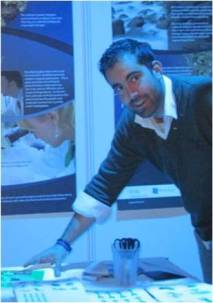Promoting Science to our younger generations is Key. This motto is now repeated throughout the world. Nevertheless, not everyone is referring to or understanding the same when using this sentence. It is argued that if you say Science you are leaving behind important areas as maths, engineering, computer sciences and so forth. Therefore, you have acronyms, the most common used being STEM (Science, Technology, Engineering and Maths), which aim to incorporate all of these areas. This means the pc version of the sentence on the beginning of this paragraph should be: Promoting STEM to younger generations is Key.

Being myself a biologist, when I think about promoting STEM, is not always easy to design and implement programs that deal with areas like computer science or engineering. So whenever I see something about a STEM initiative on one of those areas more foreign to me I am always keen on reading more about it. This week I stumbled upon two articles related with this. The first one (2012 FIRST championship) describes a massive initiative with a quarter of a million participants and representing 53 countries. This competition is all about design and building models and robots to solve problems: really impressive stuff with incredible outcomes (you can read more about it here). It is with these initiatives that we can then change the way science is viewed: realizing that there is much more to science than the image of the scientist with the lab coat and the test tubes spending all of hers/his days on a lab. Of course, having the support of a massive multinational company is key for its success. And one has to acknowledge the relevant role these companies can and are having. There are several examples closer to home of companies that are investing in STEM education. A recent example is Google, which is partnering up with a joint program from the University of Limerick and NUIG. This program offers a Professional Diploma in Mathematics for Teaching to out of the field Maths teachers, aligned with the new project Maths Curriculum. You can find more about this program here and read the words of the head of Google in Ireland, recognizing the importance of partnering up with STEM education.